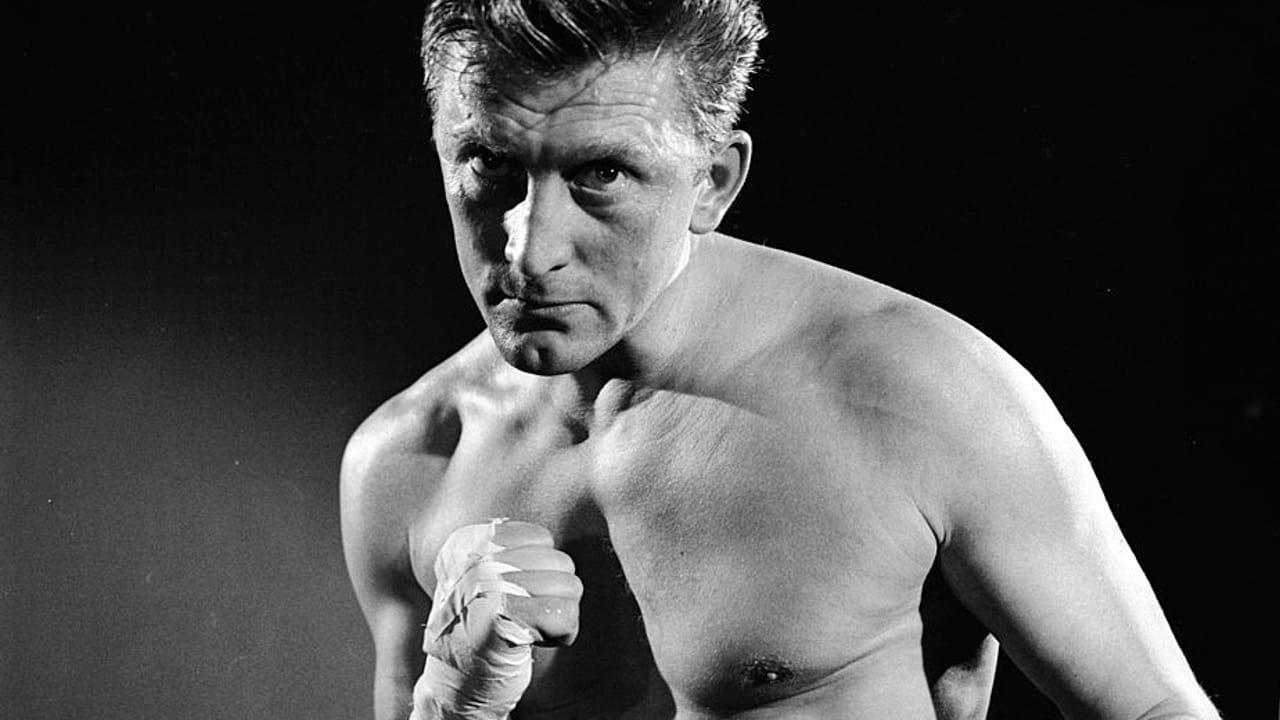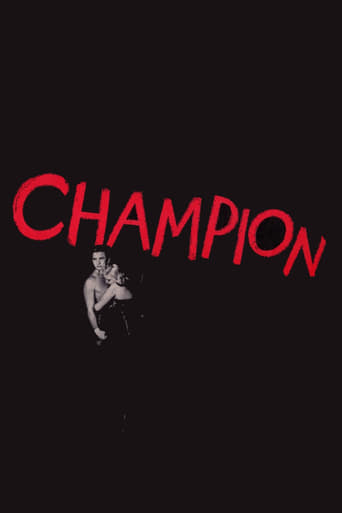

It's a mild crowd pleaser for people who are exhausted by blockbusters.
... View MoreThere are moments that feel comical, some horrific, and some downright inspiring but the tonal shifts hardly matter as the end results come to a film that's perfect for this time.
... View MoreStrong acting helps the film overcome an uncertain premise and create characters that hold our attention absolutely.
... View MoreIt's a good bad... and worth a popcorn matinée. While it's easy to lament what could have been...
... View MoreAn absolute brilliant performance by Kirk Douglas as the ruthless fighter Midge, who attained success but at a cost finally to himself and others.The film would mark Kirk Douglas's Oscar nomination and it is only too bad that he had Broderick Crawford, the winner, in that category for the latter's magnificent performance as Willie Stark in "All the King's Men," that very same year of 1949.We see a very triumphant boxer and then through the art of flashbacks, the hurt that he invariably caused others.The boxing scenes were quite authentic to say the least and probably mirrored what Midge was doing during his lifetime-creating havoc for others.
... View More"Champion" is a very good movie that is sustained by an amazing performance by Kirk Douglas in the title role. The tale of a determined individual rising from poverty to riches through sheer will is not a new story. Douglas' Midge Kelly is determined to become someone no matter what he has to do and he succeeds; trampling everyone in his path. He alienates those who love him as his lust for personal glory consumes him fully. Anyone seeking for an example of what a charismatic movie star looks like need go no further than Kirk Douglas in this film. He is an absolute powerhouse of physical energy and blows everyone else off the screen. Whether stalking his prey in the ring, hitting the speed bag, effortlessly skipping rope, or launching himself to his feet by pushing his hands off the floor Kirk is just phenomenal. Probably one of the greatest physical performances of all time; echoed many times in the future by action stars like Stallone and Johnson. Supporting performances are excellent as well. The three leading ladies (Maxwell, Albright, and Ruth Roman) are all beautiful and have their chances to shine. Marilyn Maxwell is particularly shallow and her come-uppance at the hands of the even more shallow Douglas is a great scene. Paul Stewart is terrific as the weary manager who protects his fighter's image as a great champion despite knowing what he really is. And Arthur Kennedy turns in a pretty subdued performance that deserves commendation. Although the theme of corruption in boxing is pretty standard stuff in films the character study of Midge Kelly elevates the movie to great heights. And the performance of Kirk Douglas stamps this movie as a classic.
... View MoreA boxer goes from rags to riches by working his way to the middleweight championship. It is interesting that this film and "The Set-up," another fine boxing drama, were in concurrent release in the U.S. in April 1949. Each film looks at corruption in the ring and pulls no punches, so to speak. Douglas, getting top billing for the first time, is quite believable as the boxer, an arrogant heel. There are also good performances from Kennedy as his brother, Roman as the woman he reluctantly marries, and Stewart as his manager. It is solidly directed by Robson, who also made "The Harder They Fall," another good boxing drama and Humphrey Bogart's last film.
... View MoreI love how 'Champion (1949)' presents itself as one sort of film, and then, quite knowingly, becomes something else. The opening sequence follows boxer Midge Kelly (Kirk Douglas) as he presses through the cheering crowds and into the boxing ring. A sports announcer touts the legend of Kelly's meteoric rise, from penniless drifter to middleweight boxing champion of the world. Right then, I fully expected to watch an inspirational underdog success-story, with shades of 'Rocky (1976)' rather than 'Raging Bull (1980).' However, by the end of the film, 'Champion' has removed its mask to expose a face coloured with noir. Success does, indeed, find this determined underdog, but only through a history of exploitation and betrayal. Along the way, this "champion" leaves behind a crippled brother, a fatherly manager, an innocent wife, and a succession of blonde beauties whom he invariably dumps after he's made use of them.Director Mark Robson (best known for his RKO horror collaborations with Val Lewton) cunningly forces his audience to rewatch the film's opening sequence, but this time through different eyes. No longer do we see in Midge Kelly the triumphant underdog, but the wasted vestiges of a man. The sports announcers' words ring false; the film's title – "Champion" – is to be spoken with scorn, not reverence. 1949 was an excellent year for boxing dramas: Robert Wise also released his gritty, superior 'The Set-Up (1949),' which starred Robert Ryan as a washed-up fighter who refuses to take a dive. 'Champion' is the lesser of these two pictures, held back by an occasional tendency for melodrama, but nevertheless packs a strong emotional punch. Kirk Douglas' fierce, fearless portrayal is relentlessly intense, a man so hypnotised by the prospect of power and success that he will stop at nothing to attain it.
... View More